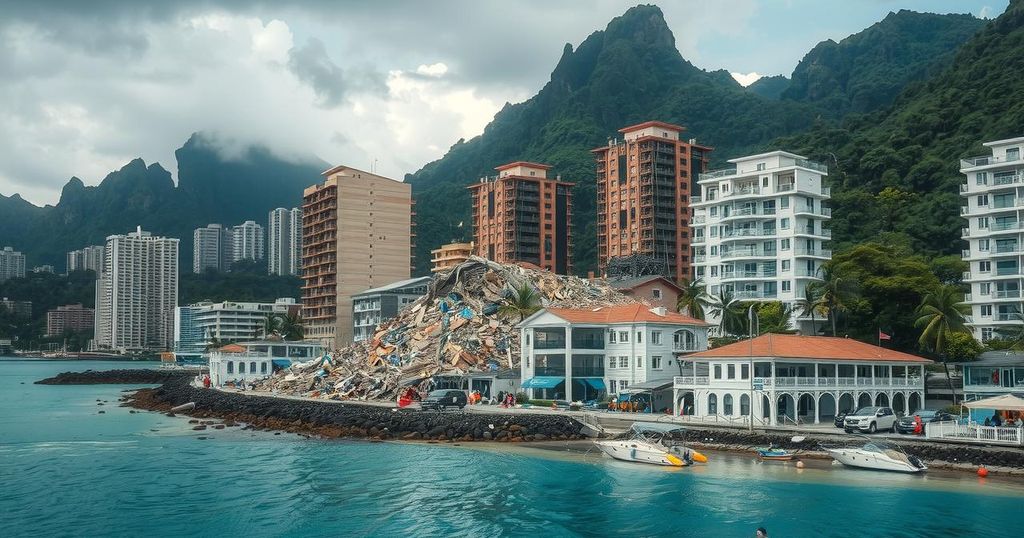South Sudan Denies Allegations of Kiir Family’s Business Empire
South Sudan’s government has rejected a report by The Sentry claiming President Salva Kiir’s family operates a large corporate network impacting the nation’s economy. The report implies involvement in corruption and procurement scandals, but officials counter that the allegations are unfounded and aimed at undermining state unity. The nation ranks poorly on corruption indices, reflecting ongoing governance challenges.
South Sudan has formally dismissed a report by The Sentry, a US-based watchdog, which alleged that President Salva Kiir’s family controls a significant network of businesses in one of the world’s least developed nations. The Sentry claimed to have identified 126 companies owned by Kiir’s relatives, engaged in vital sectors such as mining, petroleum, and banking, and highlighted ongoing corruption concerns. The President’s office characterized these accusations as “baseless and malicious,” asserting that the South Sudan Constitution allows all citizens, including family members of officials, to partake in lawful business ventures.
The report, entitled “Kiirdom,” suggests that the extensive business interests of Kiir’s family have contributed to systemic corruption, with references to their involvement in various procurement scandals that reportedly resulted in the misappropriation of billions of dollars meant for public welfare. However, the President’s representatives stated that the allegations serve only as a targeted attack against the First Family and reflect an intent to undermine national cohesion.
The Sentry, founded by well-known actor and activist George Clooney, focuses on investigating corruption and illicit financial activities in conflict zones. It revealed that while 23 members of President Kiir’s family are shareholders in numerous companies, the President himself does not appear on any corporate documents. South Sudan’s transitional constitution mandates that government officials refrain from commercial engagements while in office, raising questions about the legitimacy of these family businesses during Kiir’s presidency.
As South Sudan grapples with a stagnant economy and a ranking of 177 out of 180 in Transparency International’s corruption index, the nation’s political landscape is further complicated by President Kiir’s decision to extend the timeline for elections, now scheduled for December 2026. Human rights observers have attributed the elongated transition to widespread corruption and mismanagement of state resources, particularly from the oil sector, which has been severely impacted by disruption to vital export pipelines.
The discourse surrounding President Salva Kiir’s family’s businesses is deeply intertwined with South Sudan’s ongoing struggle against pervasive corruption and governance issues. Established as an independent nation in 2011, South Sudan has consistently ranked among the most corrupt countries globally, a fact exacerbated by a series of political crises and economic mismanagement. Despite being rich in oil, which constitutes a major portion of its GDP, the country faces significant challenges, including lack of transparency and accountability in government operations, making the scrutiny of state officials’ business interactions all the more critical.
In conclusion, South Sudan’s rejection of allegations concerning President Salva Kiir’s family’s business empire highlights a broader struggle with transparency and governance. The President’s office vehemently denies any wrongdoing, framing the accusations as attempts to destabilize the nation. Given South Sudan’s challenging economic and political climate, scrutiny of leadership practices remains paramount to fostering a more accountable government. The continuing concerns about corruption and resource management will require vigilant oversight and significant reforms to build trust in governance.
Original Source: www.france24.com




Post Comment